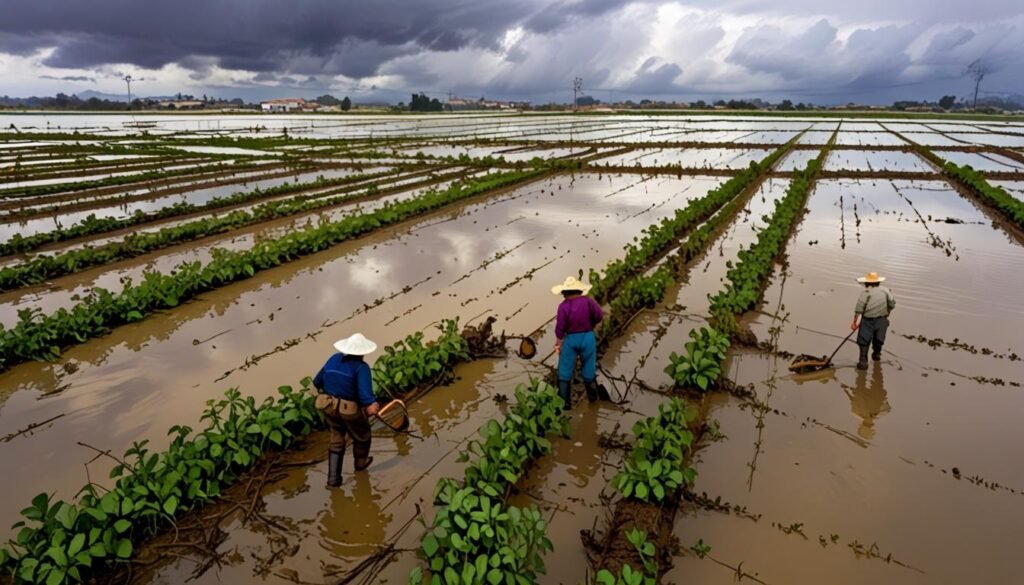**Seville**: The 2025 potato season in Spain is threatened by unprecedented rainfall causing flooding and increased disease, particularly in Seville. This could drastically reduce the supply for the European market, as planting delays and rising demand for Belgian potatoes emerge amidst geopolitical tensions.
The 2025 potato season in Spain is facing significant challenges, marked by unusually heavy and prolonged rainfall affecting both the yield and quality of the country’s early potato crop. The impact has been most acutely felt in Seville, where flooding and the proliferation of disease are complicating the efforts of local growers.
In Seville, the rainfall experienced this year has been described by José Peláez, Manager of Sevillana de Patatas, as unprecedented for the region, with such volume not recorded since 1996, a year marked by the overflow of the Guadalquivir River. Although flooding has primarily affected specific fields, the persistent humidity has led to a notable increase in mildew outbreaks, posing a threat to crop quality over a wider area. Peláez noted, “There’s still about a month to go… but the earliest potatoes will certainly be affected.”
The adverse conditions are also causing considerable delays in other parts of Spain, including Cartagena and Valladolid, where the onset of planting typically accelerates in early spring. As of early April, only 5% of the expected northern crop had been planted, a stark contrast to the usual 50% completion for this time of year. Should the heavy rains continue, this could lead to a significant reduction in the availability of potatoes for the European early summer market.
The repercussions of the situation in Spain are already reverberating throughout European potato trade. Belgian exporter Warnez has reported a surge in demand for Belgian ware potatoes in Southern and Eastern Europe, as the region seeks to compensate for the supply shortage expected from Spain. Following a slight dip in prices for processing potatoes in February and March, prices are now stabilising due to pressures on supply stemming from recent weather events.
Adding to the complexity of the market is the influence of geopolitical tensions, which have reportedly led several European retailers to steer clear of Israeli potato imports. This shift creates additional strain on Spain to meet existing demand, a task that may prove difficult given the current circumstances.
Furthermore, the processing industry in Europe is confronting pressures not only from these weather-related challenges but also from intensified competition internationally. Countries like Egypt and China are expanding their frozen potato export capabilities, while potential shifts in U.S. trade policy—particularly under the previous Trump administration with its threats of tariffs on EU food products—have left European producers in a state of uncertainty.
In 2024, the EU exported over 1 million tonnes of frozen fries, with key markets including the UK, the Middle East, and Asia. The simultaneous uncertainties in raw material availability from Spain’s fresh market and potential export barriers may pose additional challenges for processors in the region.
Spain’s early potato crisis has created what could be an inflection point for the European potato industry, highlighting the vulnerabilities compromising not only local growers but the stability of the entire supply chain. With the combination of flooded fields in Seville and planting delays in the northern regions, the shifts in supply and increasing volatility in pricing are likely to persist in the coming weeks, impacting both producers and consumers across Europe.
Source: Noah Wire Services





